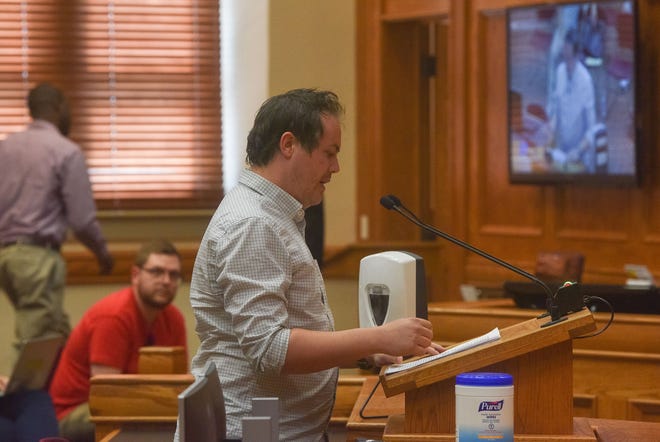The city of Sioux Falls has announced a two-week window during which applications for a license to operate one of the five medical cannabis dispensaries allowed in the city will be accepted.
Applications will be received during normal business hours at the city’s licensing office in City Hall from 2 p.m. on Oct. 29 until 5 p.m. on Nov. 15.
A lottery will then be held at 10 a.m. on Nov. 17 to distribute the five medical cannabis dispensary licenses allowed by the city, a cap proposed by Mayor Paul TenHaken’s office.
Applications for medical cannabis testing facilities also begin at 2 p.m. on Oct. 29, although the city does not limit their number.
The applications have been available on the city’s website since late September and outline the various documents that must be submitted alongside checks for the $25,000 application fee and $50,000 license fee.
More: Sioux Falls bans marijuana grow businesses and caps dispensaries at 5
City Councilor Greg Neitzert said in an interview that he believed legitimate concerns raised by medical cannabis advocates earlier this month had been addressed by a requirement that the location of the proposed dispensary be noted on the outside of the sealed envelope in which the documents are submitted.
“Legal descriptions will be noted,” the city’s website reads, “and no subsequent applications for that legal description will be accepted.”
That would ensure that numerous applications could not be submitted for the same location as long as a prospective owner had enough representatives to submit them, and enough money to pay the fully-refundable $75,000 in fees.
“I think we’ve addressed the issue that was raised to us,” said Neitzert.

Emmett Reistroffer, a consultant for the cannabis industry who’d raised the issue at a recent city council meeting, said he saw the move as a step in the right direction, but that he still had concerns about the process.
“People with good attorneys can find ways around things,” Reistroffer said.
More: Sioux Falls councilors, cannabis advocates raise concerns about possible licensing ‘loophole’




